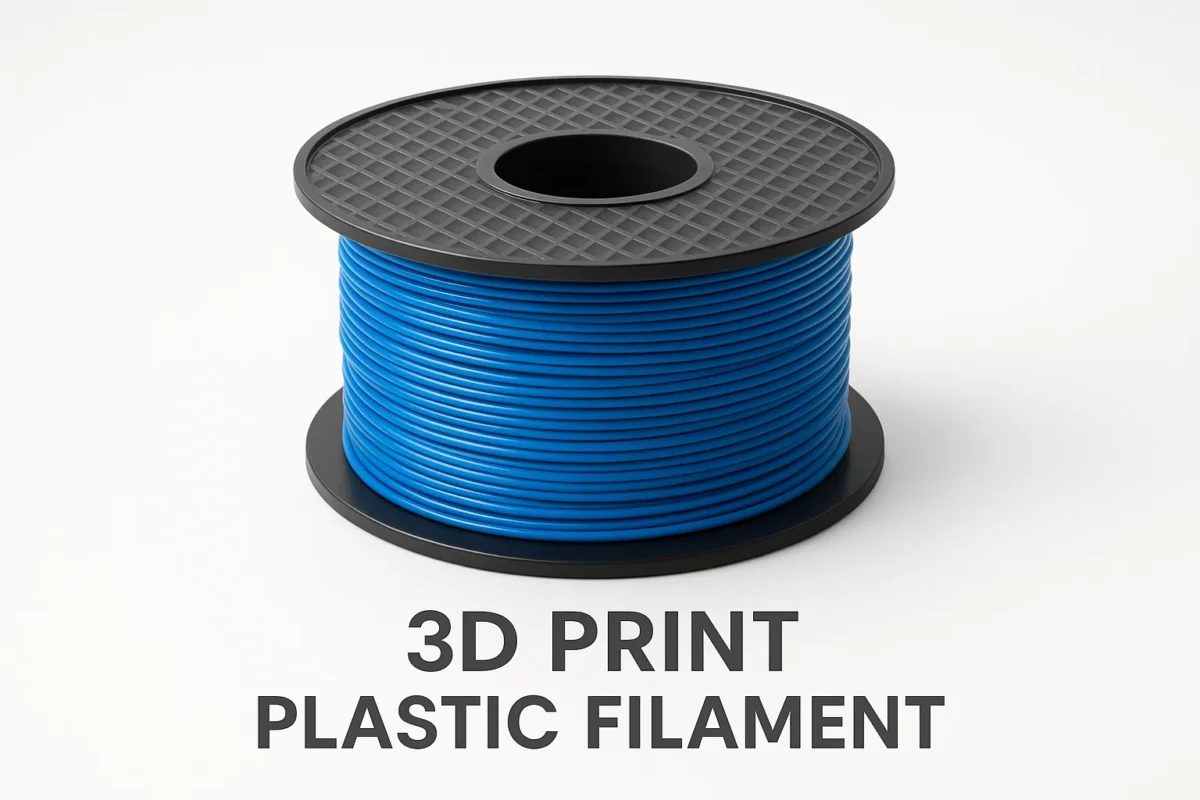Recycled plastic filament is revolutionizing the world of 3D printing, offering a sustainable, cost-effective, and environmentally responsible alternative to traditional materials. By transforming post-consumer and industrial plastic waste into high-quality filament, this innovative solution not only reduces pollution but also promotes a truly circular economy.
What Is Recycled Plastic Filament?
Recycled plastic filament is a 3D printing material manufactured from reclaimed plastics such as PET, PLA, and ABS. Sources of this material include everyday items like water bottles, food containers, electronic waste, and even failed 3D prints. The collected plastic is meticulously cleaned, shredded, melted, and then extruded into filament suitable for FDM (Fused Deposition Modeling) 3D printers.
Common Types of Recycled Filament
- Recycled PET (rPET) Filament – Made from water bottles and food packaging
- Recycled PLA Filament – Derived from biodegradable PLA prints and industrial waste
- Recycled ABS Filament – Sourced from electronics and industrial plastic scraps
Key Applications for Recycled Plastic Filament
Recycled filaments are versatile and can be used for a wide range of projects, including:
- Prototyping: Rapidly create models for design and engineering
- Educational Projects: Teach sustainability and 3D printing in classrooms
- Architectural Models: Produce detailed scale models for planning and presentations
- Artistic Creations: Sculptures, decor, and custom art pieces
- Functional Parts & Tools: Manufacture replacement parts or custom tools
Choosing recycled filament not only helps the environment but also sends a strong message about your commitment to sustainability.
How Is Recycled Plastic Filament Made?
The process of creating recycled plastic filament is both efficient and eco-friendly:
- Collection: Plastic waste is sourced from recycling centers, industries, or local communities.
- Cleaning & Sorting: Materials are thoroughly cleaned and sorted by plastic type.
- Shredding: Clean plastics are shredded into small, manageable flakes.
- Extrúzia: The flakes are melted and extruded into precise filament strands, then wound onto spools.
This closed-loop system significantly reduces reliance on virgin plastics and minimizes energy use.
Tips for Printing with Recycled Filament
For the best results with recycled plastic filament:
- Set the Right Temperature: Use recommended nozzle temperatures (e.g., 230°C for rPET) to ensure smooth extrusion.
- Keep Filament Dry: Store filament in a dry box or use desiccants to prevent moisture absorption, which can cause print defects.
- Ensure Proper Bed Adhesion: Level your printer bed and use adhesives like glue sticks or PEI sheets for optimal first-layer adhesion.
- Calibrate Your Printer: Print a test model to fine-tune your settings for each new spool.
Where to Buy Recycled Plastic Filament
Eco-conscious brands and specialized marketplaces now offer a wide selection of recycled plastic filaments. When shopping, look for certifications such as:
- Global Recycled Standard (GRS)
- ISO 14001 Environmental Management
- RoHS Compliance
These certifications guarantee the authenticity and sustainability of the materials you purchase.
Why Choose Recycled Plastic Filament?
1. High Quality and Reliability
Every spool is rigorously tested for strength, consistency, and ease of printing. Expect smooth, reliable prints without clogs or surprises.
2. Real Environmental Impact
Our filaments are produced from certified recycled plastics with complete supply chain transparency. Every print is a step towards a greener planet.
3. Reduced Carbon Footprint
Local production and energy-efficient manufacturing methods help cut down emissions and waste.
4. Vibrant Colors, Durable Prints
Whether you’re prototyping or creating art, enjoy a range of colors and robust results.
5. Eco-Friendly Packaging
We use recycled boxes and spools, eliminating unnecessary plastic packaging.
Make the Switch: Print for a Cleaner Planet
Recycled plastic filament represents the future of sustainable 3D printing. By turning waste into valuable material, it empowers makers, educators, and businesses to innovate responsibly. Whether you’re a hobbyist, designer, or sustainability advocate, switching to recycled filament is a simple yet meaningful way to reduce your environmental footprint and champion positive change.
Pripravený urobiť rozdiel? Preskúmajte našu šírku recyklovaných filamentov z plastu a pridajte sa k pohybu smerom k čistšej, zelenšej svetu!

